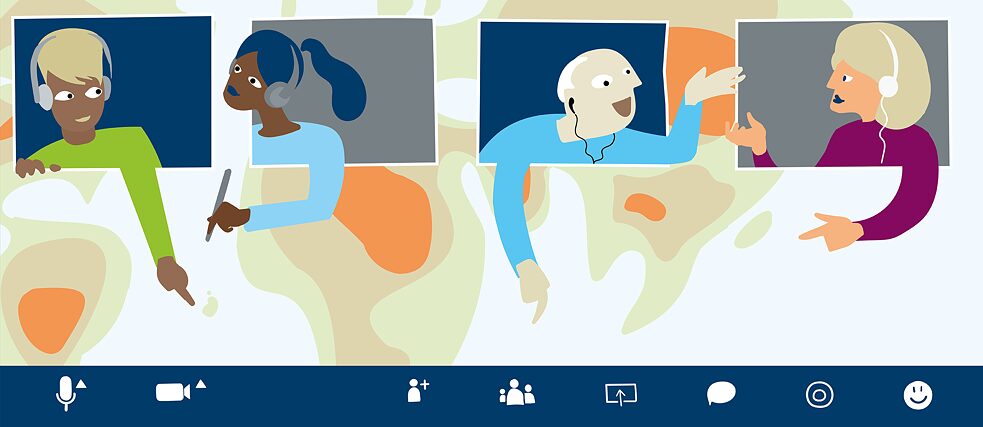"Climate Challenge Hackathon"
Protecting Our Climate with Digital Tools

The Climate Challenge is an online hackathon announced by the Goethe-Institut and Scientists for Future Heidelberg in which a total of 30 teams developed innovative digital solutions to fight climate change.
By Annette Walter
Protecting our climate is one of the most urgent problems of the present to preserve the earth for future generations. This is especially true at a time when some national leaders are denying climate change. Solutions and concepts are needed to implement sustainable policies that protect the natural habitat of humans and animals.
This led to "The Climate Challenge", a Europe-wide competition organised by the Goethe-Institut, Scientists for Future (S4F) and The Hackathon Company to develop digital solutions for climate change. The online hackathon, for which 250 participants from 24 European countries registered, took place on various platforms over four days. In addition to developing the project ideas, the hackers were able to take part in live streams, online seminars and Q&A sessions and were coached by experts.
Finally, they presented their projects with an online pitch. Four winners were chosen who will receive financial support to implement their project ideas.
A bot that debunks fake news spread by climate change deniers
"Is This an Expert?" is the name of one of the winning projects. The bot checks whether tweets about climate change actually originate from experts and how well-founded the information they contain is – a smart tool to combat the misinformation circulating on social media about climate change.The "CeCeCe" project, which Theresa Fink explained in an online pitch, was also awarded. Its goal is to motivate passive people to get involved in the climate protection movement. According to the creators, the language used is particularly important, because the prevailing polarisation in the discussion between climate protectors and climate deniers is often fuelled by aggressive debates. So "CeCeCe" is a tool for optimising climate communication. It uses natural language processing tools to analyse mood, tone and sentence structure, and suggests alternative phrasing to keep the discourse objective.